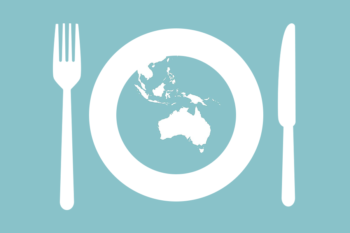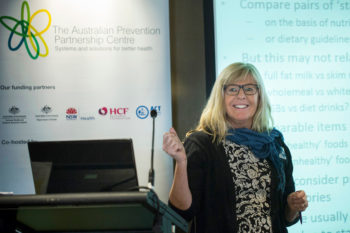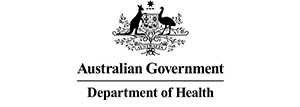Supporting priority actions in the food and nutrition system

Status completed
Start Date
End Date
Unhealthy diets are the leading preventable risk factor contributing to the burden of disease globally and in Australia.
This project generated practical evidence around priority nutrition actions that contribute to low-cost, translatable and scalable solutions.
Introduction
The project has produced decision making tools to improve understanding of Australian food environments and the regulation and governance regime.
Featured project resources
-
Infographic: Evaluation of the introduction of the YMCA healthy food and beverage policy
Resource category:Visuals
Date -
Collaborating for healthier food retail
Resource category:Podcasts
Date -
Building healthier, more equitable and sustainable food systems for Australia
Resource category:Findings Brief
Date -
Cost and affordability of healthy, equitable and more sustainable diets, and store food environments, in the APY Lands
Resource category:Policy Briefs
Date
Featured project news
-
Healthy food policies in sport and recreation settings make for healthy customers and revenue
News Category: Prevention Centre NewsDate -
One simple solution to healthy affordable food
News Category: Media coverageDate -
Seed funding now bearing fruit
News Category: Prevention Centre NewsDate
About
Diet and chronic disease prevention: Supporting implementation of priority actions in the food and nutrition system
Project titleWhat is the issue?
Unhealthy diets are the leading preventable risk factor contributing to the burden of disease globally and in Australia. They are a major contributor to the more than $50 billion estimated in annual health care costs and lost productivity from overweight and obesity in Australia.
Less than 1% of Australians eat diets recommended by the Australian Dietary Guidelines, and more than 35% of the energy intake of adults and more than 39% of the energy intake of children comes from discretionary food and drinks (those high in added sugar, saturated fat, salt and/or alcohol).
In addition, dietary risks are not distributed equally. Groups who experience greater social disadvantage have less healthy diets, and suffer increased risk of malnutrition, obesity and diet-related chronic disease.
We know that unhealthy diets are driven by current food environments and policies which do not support healthy eating. We need to understand how to better influence nutrition policy and ensure governments implement effective actions in the face of competing interests with different levels of power and influence on the food system.
How did the project address the issue?
We know the influences on population nutrition are complex, and that multiple policy actions are needed to help improve population diets in Australia. This project identified what influences nutrition policy and action, to better understand what evidence-based actions governments can take to intervene in food systems.
The project assessed current food environments in each participating jurisdiction; examined how implementation of priority policy actions could be better supported and by which actors; and worked with key stakeholders to develop, implement and evaluate specific demonstration projects at multiple levels.
We used a range of approaches including regulatory and policy science, behavioural economics and systems mapping to support stakeholders to improve implementation of evidence-based interventions.
Relevance of the project for policy and practice?
This work provides policy makers and health and nutrition practitioners with assessable and useful information on the current state of Australian food environments, priority nutrition policy actions, and how best to intervene in food system to improve population nutrition and health.
The project generated evidence to help move beyond the nanny state/individual choice and regulation/deregulation debates that characterise nutrition policy, regulation and governance literature and discourse.
Health professionals are now better equipped to communicate effectively with policy makers, key actors and the public about evidence-based nutrition policy actions, and policy makers will have ready access in user-friendly formats to the information required for evidence-based decision-making around potential nutrition policy actions that can facilitate Australia’s transition to a nutritious, equitable and sustainable food system.
What were the expected outcomes?
This project generated practical evidence around priority nutrition actions that contribute to low-cost, translatable and scalable solutions. Key achievements included:
- Launch of Australia’s first Food Environment Dashboard bringing together the best available and most up-to-date data on all aspects of Australia’s food environments including key indicators of the healthiness of our food supply, and the ways in which foods are labelled, priced and promoted
- New evidence demonstrating that healthy, sustainable diets can be less expensive than the current Australian diet, although they are still unaffordable for low-income groups, particularly for those living in remote areas of Australia
- Development of Healthy Diets ASAP (Australian Standardised Affordability and Pricing) methods protocols for use with Aboriginal and Torres Strait Islander communities and low socioeconomic groups
- A deeper understanding of the regulatory governance factors that influence the development and implementation of food marketing, labelling, taxation and composition policies
- A recipe of regulatory governance conditions that are necessary or sufficient to achieve positive public health nutrition policy outcomes.
News and media
-
Healthy food policies in sport and recreation settings make for healthy customers and revenue
News Category: Prevention Centre NewsDate -
One simple solution to healthy affordable food
News Category: Media coverageDate -
Seed funding now bearing fruit
News Category: Prevention Centre NewsDate -
As we face a “perfect storm” for food security, here are some solutions
News Category: Media coverageDate -
Food Environment Dashboard award finalist
News Category: Prevention Centre NewsDate -
Using evidence to improve population diets: Australia’s food dashboard
News Category: Prevention Centre NewsDate -
World leading actions in the food and nutrition system
News Category: Prevention Centre NewsDate -
Big Appetite for Food Dashboard
News Category: Prevention Centre NewsDate -
No, it’s not just a lack of control that makes Australians overweight. Here’s what’s driving our unhealthy food habits
News Category: Media coverageDate -
Food dashboard shows just how unhealthy Australian supermarkets are
News Category: Media releasesDate -
Food security – Flavour of the month
News Category: Prevention Centre NewsDate -
Affordability of healthy diets and the COVID-19 pandemic
News Category: Prevention Centre NewsDate -
Investigators’ Forum and the future of chronic disease prevention
News Category: Prevention Centre NewsDate -
Supermarkets urged to end heavy promotion of unhealthy foods
News Category: Prevention Centre NewsDate -
Blurred lines: Food marketing and digital content
News Category: Prevention Centre NewsDate -
Meet Professor Amanda Lee
News Category: ProfilesDate
Resources
-
Infographic: Evaluation of the introduction of the YMCA healthy food and beverage policy
Resource category:Visuals
Date -
Collaborating for healthier food retail
Resource category:Podcasts
Date -
Building healthier, more equitable and sustainable food systems for Australia
Resource category:Findings Brief
Date -
Cost and affordability of healthy, equitable and more sustainable diets, and store food environments, in the APY Lands
Resource category:Policy Briefs
Date -
Australia’s Food Environment Dashboard launch
Resource category:Videos
Date -
Australia’s Food Environment Dashboard website
Resource category:Websites
Date -
Engaging small businesses in healthy food service initiatives: Lessons for local governments
Resource category:Visuals
Date -
Healthy, equitable and sustainable diets cost and affordability in Queensland
Resource category:Policy Briefs
Date -
Inside our supermarkets: Assessment of the healthiness of Australian supermarkets
Resource category:Reports
Date -
Policies for tackling obesity and creating healthier food environments: 2019 progress update
Resource category:Reports
Date -
Healthy Diets ASAP images
Resource category:Visuals
Date
Publications
Other publications
2020
- Cicchini S, Lee A, Cullerton K. Who votes for public health? An analysis of Australian politicians’ parliamentary voting behaviour. Public Health Res Pract. November 2020. doi.org/10.17061/phrp30342014
2019
- Swinburn BA, Kraak VI, Allender S, Atkins VJ, Baker PI, et al. The global syndemic of obesity, undernutrition, and climate change: The Lancet Commission report. Lancet. 2019. doi: 10.1016/S0140-6736(18)32822-8
- Clarke B, Swinburn BA, Sacks G. Understanding the LiveLighter obesity prevention policy decision-making process: An investigation using political science and systems thinking. Soc Sci Med. 2020;246. doi: 10.1016/j.socscimed.2019.112757
- Robertson N, Sacks G, Miller P. The revolving door of politics, government and the alcohol, food and gambling industries in Australia. Public Health Res Pract. 2019;29(3). doi: 10.17061/phrp2931921
Book
- Friel S. Climate Change and the People’s Health. Oxford University Press. February 2019.
Presentations
- Lee, A. Invited presentation and delivery of training workshop on the INFORMAS’ Food Prices Module at the first meeting of the African Food Environment Research Network (FERN) Initiative. FERN aims to encourage research collaboration, capacity building, and implementation of innovative food environment research in Africa, and other LMIC settings. Organised by the MEALS4NCDs (Providing measurement, Evaluation, Accountability and Leadership for NCDs Prevention) program based in Ghana. 3-5 November 2020.
- Lee, A. Invited keynote: A Fork in the Road – steps to healthy, equitable and sustainable nutrition policy action. International Conference on Public Health for Tropical and Coastal Development. Lifestyle and Environmental Changes: challenge for public health in coastal and tropical areas. Semarang, Indonesia. 29-30September 2020.
- Ngqangashe, Y. Framing the impacts of COVID-19: Securing food regulatory policies for the prevention of non-communicable diseases. 2020.
- Ngqangashe, Y. Regulatory governance for population nutrition webinar. Webinar, School of Regulation and Global Governance, July 2020.
- Ngqangashe Y. COVID-19, NCDs and the role of food regulation, Rural Health Advocacy project and Healthy Living Alliance (South Africa), 2020.
- Boelsen-Robinson T. Tools for implementing healthy food retail practices. Nourish Network. May 2020.
- Lee A. Aboriginal and Torres Strait Islander Healthy Diets ASAP (Australian Standardised Affordability and Pricing) methods, Symposium on World Food Day, Melbourne, Australia. 16 October 2019.
People
Lead investigators
-
Professor Amanda Lee
University of Queensland -
Professor Sharon Friel Professor Sharon Friel has finished working with the Prevention Centre.
Australian National University -
Professor Gary Sacks
Deakin University -
Professor Anna Peeters AM
Deakin University
Project team
-
Dr Katherine Cullerton
University of Queensland -
Dr Meron Lewis
University of Queensland -
Ella Robinson
Global Obesity Centre -
Dr Yandisa Ngqangashe
Australian National University -
Dr Tara Boelsen-Robinson
Deakin University -
Dr Cindy Needham
Deakin University -
Professor Kathryn Backholer
Deakin University -
Tom White Tom White has finished working with the Prevention Centre.
University of Cambridge -
Ella Parnell Harrison
University of Queensland -
Dr Shaan Naughton
Deakin University -
Dr Ashley Schram
Australian National University -
Sally Schultz
Deakin University -
Lisa Herron
University of Queensland -
Dori Pattay
University of Queensland -
Ru Chyi Tan
University of Queensland -
Evelyn Nicoli
University of Queensland



























